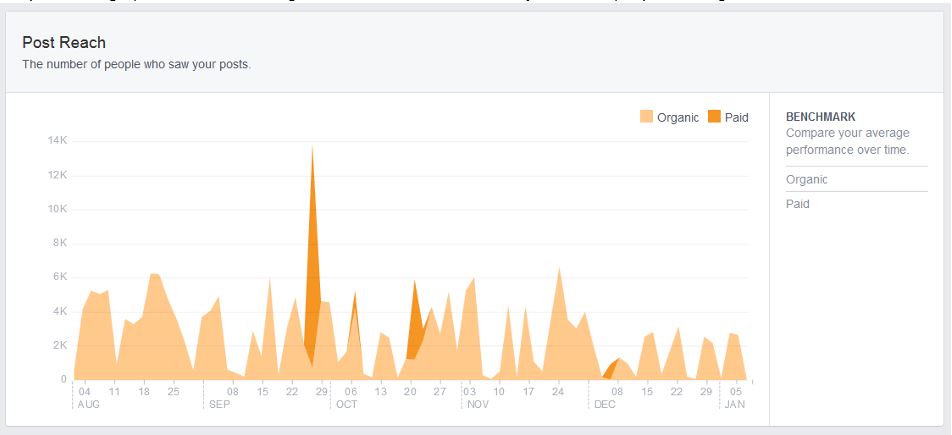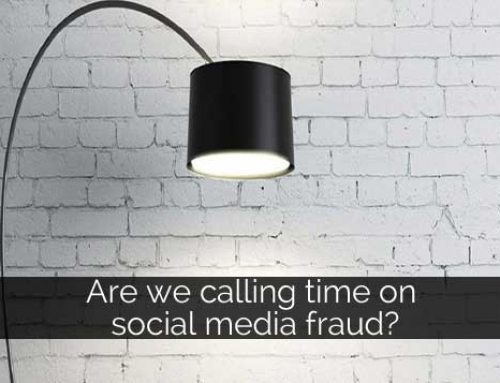It’s not entirely true that there’s no such thing as a free lunch: sometimes there is, just usually not for very long. And so it’s proven with Facebook.
In the early days, business marketers really did get a pretty delicious free lunch on Facebook. They did all the hard work of developing and managing an infrastructure that would attract pretty much the biggest single audience in human history; all you had to do as a business marketer was show up, and create content that consumers enjoyed.
And access to that massive audience was free; once you’d attracted some folk to Like your page, you could generally expect the Reach of an individual Post (ie, the number of people who saw it) to bear at least some resemblance to the number of Likers you had.
When is a Liker not a Liker?
Towards the end of 2012, many Pages saw that reach decline. This was down to changes in the Facebook News Feed algorithm (then called Edgerank).
Once a user is connected to sufficient people and Pages that there’s more content available when they log on than they’ll realistically read through, Facebook filters that content to try and present the user with the stuff they’ll find the most fascinating. The News Feed algorithm is the thing that does the filtering, and over the years has prioritised all kinds of different “signals” from the user as to what content they were going to enjoy the most.
The algorithm seems to get tweaked more or less constantly, although of course Facebook don’t give away too many details. But there was another big change at the end of last year.
Facebook says: spend some dosh or forget it
And unlike the last time we saw a major decline in post reach, when Facebook denied that this was a deliberate strategy, this time round they are very explicit that there’s been a deliberate shift in the algorithm in a way which basically reduces Page owners’ access to their Likers’ newsfeeds.
Because the content in News Feed is always changing, and we’re seeing more people sharing more content, Pages will likely see changes in distribution. For many Pages, this includes a decline in organic reach.
They go on to state pretty categorically that you need to prepare to spend money, recommending that Page owners use
a combination of engaging Page posts and advertising to promote your message more broadly. Advertising lets Pages reach the fans they already have and find new customers as well. The fans you have matter. In addition to being some of the most loyal customers, fans also make the advertising on Facebook even more effective.*
Organic reach decline in pictures
They’re not kidding. Here’s what the change, which looks to have taken effect pretty clearly at the start of the December, has done to one of our clients.
This business has a Liker base of over 10,000, and we’ve been managing their page for over two years. Levels of engagement have been consistently strong during that time, but look what happened to their reach when the new algorithm cut in:
A quick glance shows that there’s been a reduction in peak reach from 5-6k per post, to around 3k. So yes, Facebook really mean business on this one.
What does this mean for Businesses on Facebook?
There are big implications this time. Here are our top ones:
Coming up with a strategy to gain targeted, relevant Fans is more vital than ever. Facebook paid media is frequently based on promotion to either your Likers or your Likers’ friends, so in either case having a solid Liker base to start with is crucial to getting value out of your paid media. If you’ve been running ill-advised contests which have attracted a huge Liker base of Indian ipad lovers when you’re running a nightclub in the UK, you’re now going to be paying for the privilege of showing your content to those people who will never buy from you.
It’s more important than ever to think carefully about whether you have the time, content and budget to make Facebook work for you. (In actual fact this is a blessing for both users and businesses – the overall quality of business-generated content should go up, as those businesses who don’t “get” the Facebook environment give up and leave, and businesses who were “dabbling” will refocus their efforts elsewhere and stop wasting time on Facebook.)
Relying on “viral” content shares just got even harder. If you don’t pay for visibility, you’re relying on even fewer initial views to generate shares and get your brand seen. Together with the difficulty of creating truly “catchy” content in the first place, your chances of making an impact are low.
But basically, this means that Facebook is now mature in terms of a clear business model: they provide the infrastructure and attract the users, you pay for access to those users – essentially the same as for any other web property. A business can still influence both the reach and impact of their Facebook presence (through a clever attraction strategy to draw in Likers, rigorous targeting for paid media, and ensuring that the content is up to scratch when it is seen); but without setting aside a regular budget, the majority of organisations are not going to see results.
*full article text from the Facebook blog can be found here






Leave A Comment